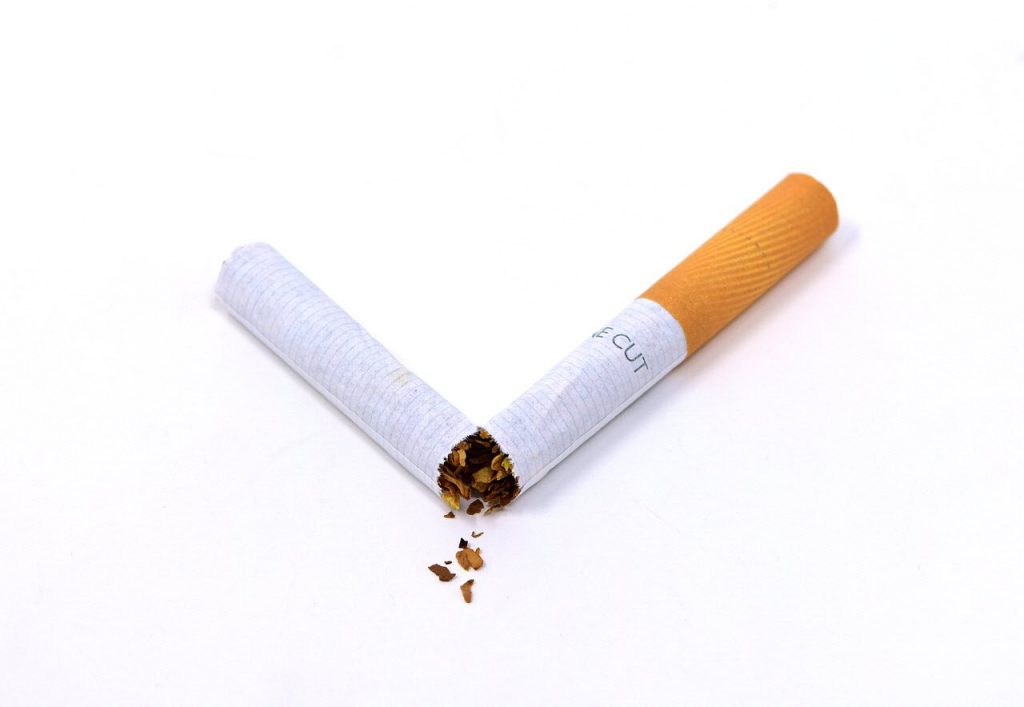
What happens when you stop smoking cigarettes? You don’t have to wait years and year to reap the benefits. As you can see from our timeline below, the positive effects of not smoking actually start kicking in almost immediately. Knowing that several great things has already happened to the body as a result of us not smoking can help us keep away from the cigarettes as we struggle against the urge to start again.
For each day that you stay away from the cigarettes, your body will get a chance to heal itself some more. Eventually, your risks of smoke-associated health problems will have dropped dramatically – in some cases all the way down to the same level as for people who never smoked.
After half an hour without smoking
Cigarettes increase the heart rate, but this effect is short lived. Already within half an hour after your last cigarette, the effect will have worn off. Your increased blood pressure will also have begun to drop.
After 12 hours without smoking
Your body has now cleansed itself of the excess carbon monoxide. With carbon monoxide back to healthy levels, there will be more room in your blood for transporting oxygen.
After 24 hours without smoking
After a mere 24 hours without a cigarette, you have already lowered your risk of a heart attack, and this risk will continue to go down as you continue to stay away form the cigs.
After 2 days without smoking
Smoking cigarettes damages the nerve endings responsible for your sense of smell and taste. But don’t worry – this can be repaired if you just stay away from the smokes. For many people, two smoke free days is all that’s required to start noticing a small improvement in the ability to smell and taste. For some, this heightened sense of smell and taste can actually actually a bit overwhelming at first, but it is a sign that your body has begun to heal.
After 3 days without smoking
You have now reached a stage where the nicotine that was stored in your body from the cigarettes isn’t there anymore. This is great from a health perspective, but you should also be aware that for many, this is a tough period of the quitting process since you may experience strong withdrawal symptoms. Please be assured that this won’t last for long – it is just a temporary stage when your body is reacting to not having any nicotine available anymore. As the body adjusts to functioning without nicotine, it is common to experience irritability and moodiness. Some people get severe headaches – which is of course horrible to experience but also a sign that nicotine is no longer messing with your head.
After one month without smoking
Congratulations to being without cigarettes for a month!
Compared to one month ago, your lung function has improved. Not by much, but it has improved and things are moving in the right direction. As your lungs continue to improve, you will notice that you are coughing less, and are less likely to become out of breath.
It is also worth knowing that your circulation has improved and will continue to improve over the commíng months.
After nine months without smoking
Your lungs have undergone significant healing and you can expect the cilia to have recovered in these nine months of no cigarettes. Cilia are delicate hair-like structures that help transport mucus out of the lungs. Without properly functioning cilia, we become more prone to lung infections.
After one year without smoking
One year of no cigarettes! Compared to one year ago, your risk of coronary heart disease has been cut in half. As you move forward into your second smoke-free year, the risk will continue to drop.
After five years without smoking
Certain toxins present in cigarette smoke cause the blood vessels, including the arteries, to narrow. These toxins will increase the risk of you suffering from a blood clot, and an increased risk of a blood clot getting stuck in a vessel means an increased risk of a stroke, which is a potentially life-threatening event.
When you stop smoking, you stop making your blood vessels more narrow, and this is of course great for your health. But even better news is the fact that with enough time without cigarettes, the body can actually heal itself and bring you back to how you were before you started smoking. Recovering from the damage takes time, especially if the damage was already severe when you stopped smoking, but after five years of no cigarettes, the blood vessels (including the arteries) have started to widen again. Over the next 10 years they will continue to widen, and your risk of blood clots and stroke will drop correspondingly.
After 10 years without smoking
After 10 years without smoking cigarettes, your risk of getting lung cancer and dying from it will be approximately 50% lower than if you had continued to smoke. The risk is still elevated compared to someone who never smoked, but it is drastically lowered compared to those who have continued to smoke.
Ass an added bonus, your risk of developing cancer of the mouth, throat or pancreas has also dropped significantly during these 10 years.
After 15 years without smoking
Congratulations – your risk of developing coronary disease or pancreatic cancer is now on the same level as for those who never smoked.
After 20 years without smoking
For a wide range of cigarette-related health problems, your risk of dying from one of them have now dropped to the same level as for those who never smoked. This includes a large selection of cancers and lung diseases.

